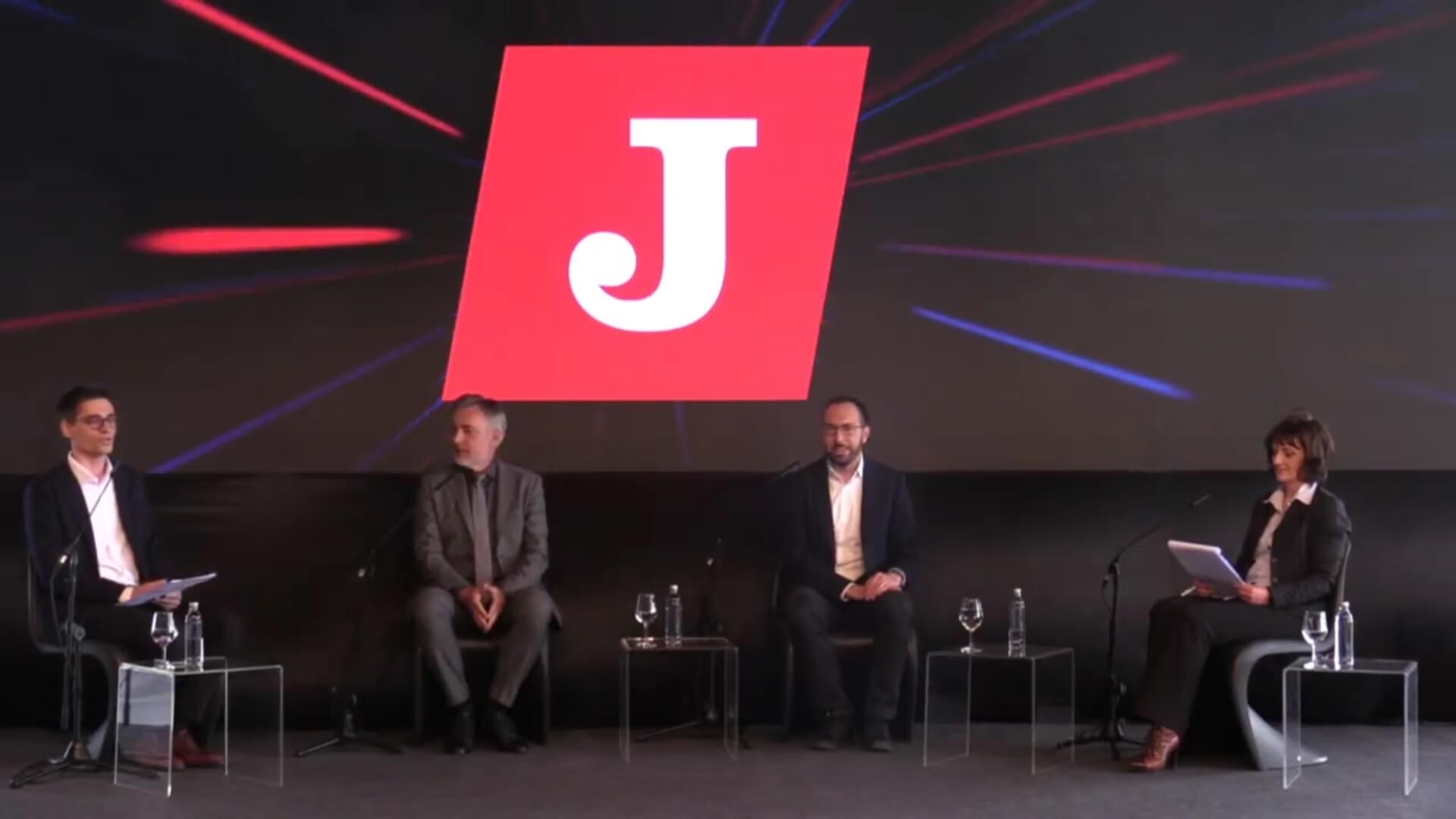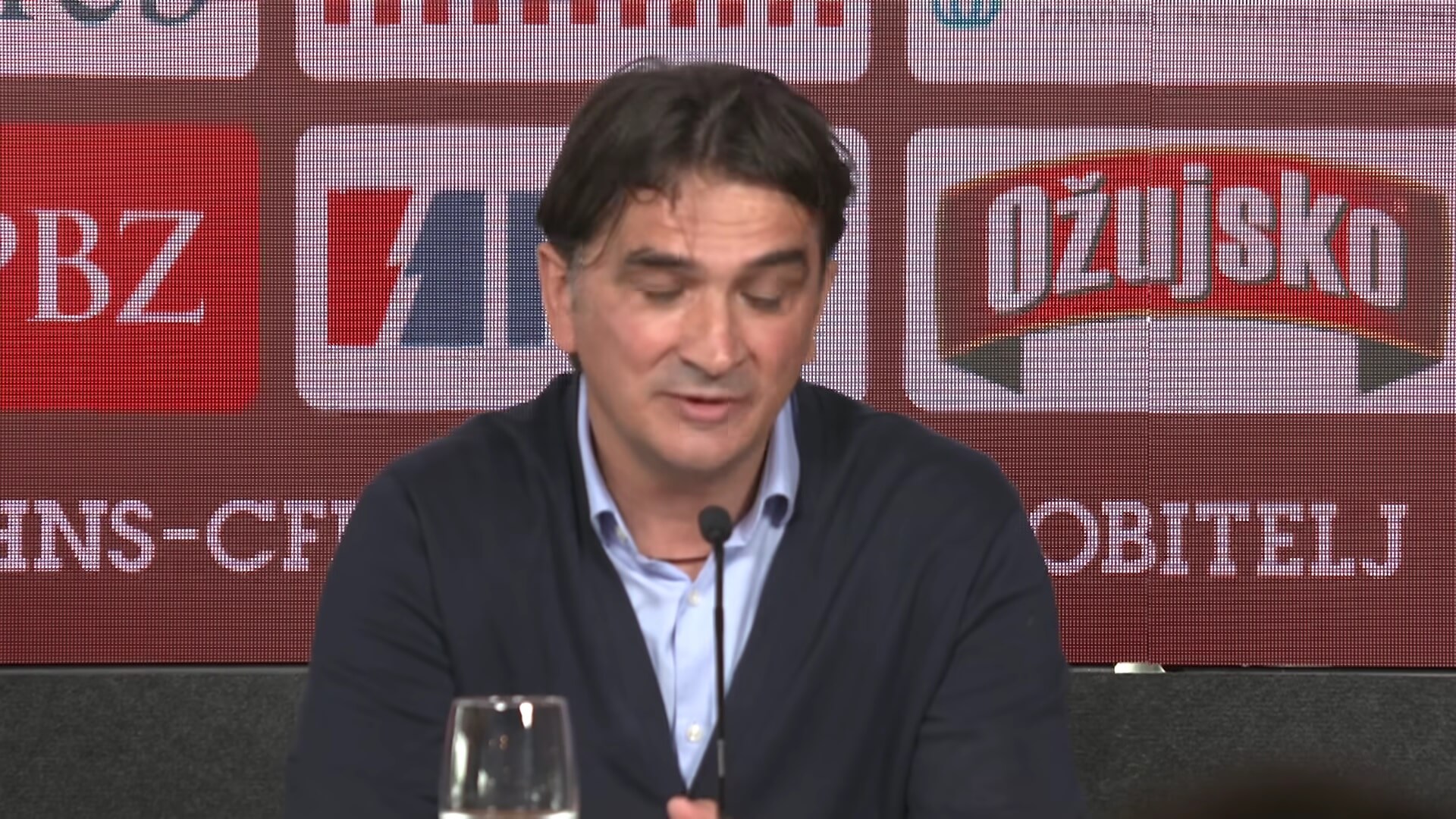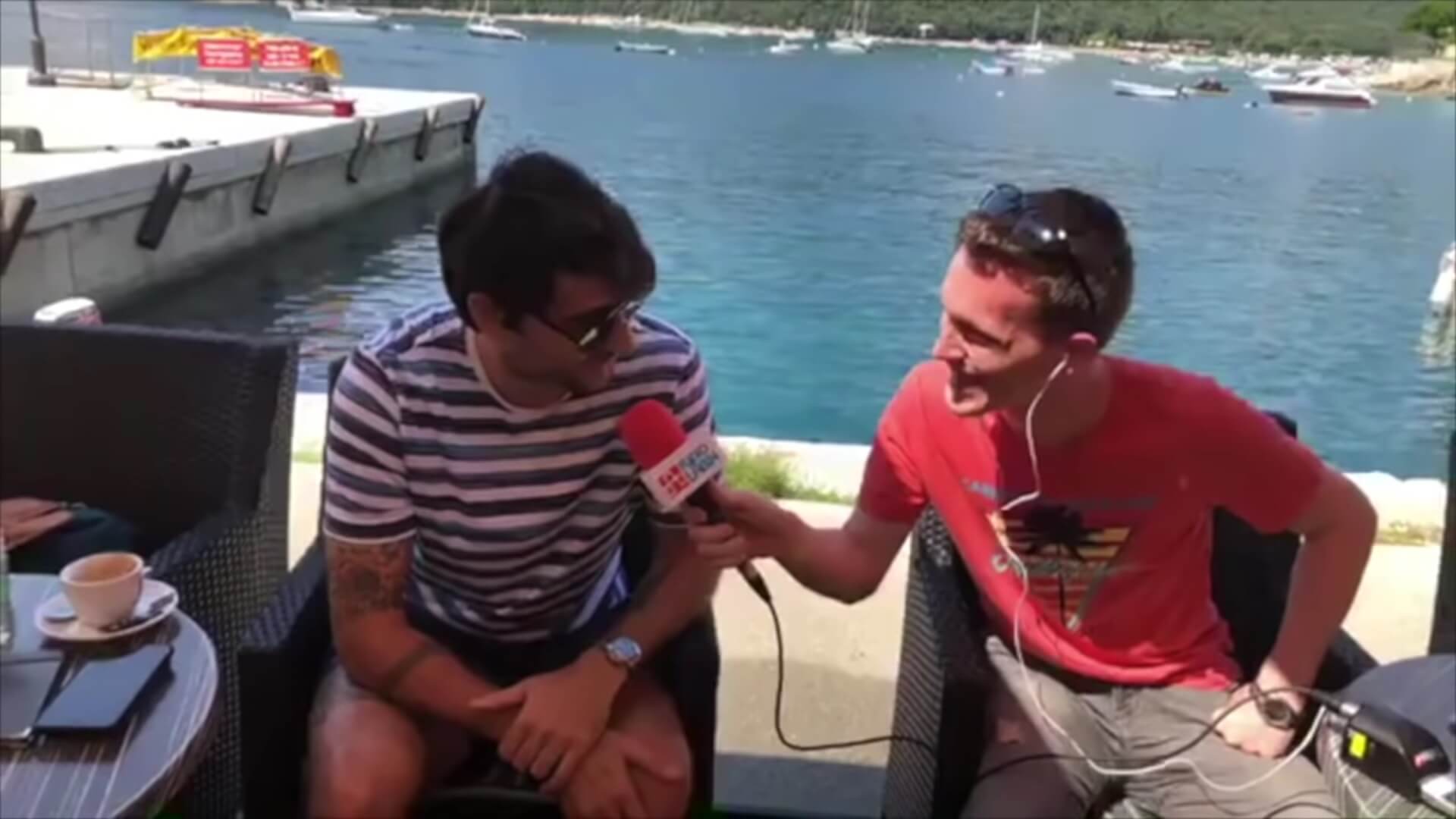Homeland Movement Leader: This Year's Sowing to be Most Expensive Ever
ZAGREB, 29 Jan 2022 - Homeland Movement (DP) leader Ivan Penava said in Osijek on Saturday that this year's sowing in Croatia would be the most expensive ever and that it would result in the collapse of the national farm sector and citizens' living standards.
"The government is ignoring the problem and is late in responding," Penava told a news conference.
A member of the DP Agriculture Committee, Darko Dimić, said that the coming pre-sowing fertilisation would be a number of times more expensive than last year.
Talks with farmers have shown that they will reduce the use of artificial fertilisers by 25-50%, which will result in a drop in yields and their quality, Dimić said.
Asked by reporters to comment on an increase in the number of deaths in 2021 in relation to the 2015-2019 average, Penava said the incumbent government did not concern itself with demography just as previous governments had not.
As for a reporter's remark that Vukovar and Vukovar-Srijem County had lost the largest number of residents, according to preliminary results of the 2021 census, Penava said that it was true when one spoke about relative percentages but that Osijek-Baranja County was the one to have lost the largest number of inhabitants.
"I have been saying for ten years that Vukovar does not have 27,000 inhabitants, which is the number from 2011, but 22,000. This census will prove that we were right and that the number was exaggerated," Penava said, noting that Serbs did not account for almost 35% of Vukovar's population.
"I have been saying for years that the only one who benefits from that percentage is the Independent Democratic Serb Party (SDSS), because the number of its councillors (in the Vukovar city council) and its income from the city budget as well as its other rights depend on it," said Penava, who is also Mayor of Vukovar.
Highlights of the Week: 5 Big Events in Croatia from May 17-23, 2021
May 23, 2021 - TCN's highlights of the week. A look at the events in Croatia from May 17 through the selection of TCN's reporter Ivor Kruljac.
From Local elections to released details of the Euro 2020 championship strategy to the release of Zoran Mamić. Add Besana company attempting to boost its position in Croatia, and you have a truly exciting week. Here are the highlights.

screenshot / Jutarnji list
Highlights of the Week: Zagreb mayor candidates Tomašević and Škoro had a debate ahead of the second round of elections
Jutarnji List invited on Friday mayoral candidates Miroslav Škoro (Homeland Movement), and Tomislav Tomašević of the green-left party We Can! to debate ahead of new elections.
In the first round of the elections, We Can! earned 147.631 votes (45.15%), while Homeland Movement had 39.789 votes (12.16%). Before officially entering the second round, Škoro declared Tomašević and We Can! party extreme left and pushed the narrative of elections as an ideological referendum among right-wing and conservative circles. Škoro also accused We Can! of being foreign mercenaries working for a philanthropist George Soros or wanting to revitalize Yugoslavia and Škoro's associate Zlatko Hasanbegović earlier in the week called We Can! a lesbian syndicate. Additionally, Nikola Grmoja (Most Party) stated for N1 that We Can! are Soroshians and accusations of their weird name-calling saw a random generator on the internet designed to mock these terms by random options of name-calling. Meanwhile, Tomašević continued the campaign talking about solutions to the problems Zagreb is currently facing but occasionally makes remark accusations while keeping it clean. The debate on Jutarnji List saw similar rhetoric from both candidates in their public performances, and overall, at least for the people of Zagreb, May 30 can't come soon enough.
screenshot / Hrvatski nogometni savez
Highlights of the Week: Zlatko Dalić announces preliminary EURO 2020 Croatia player list
Coach Zlatko Dalic has announced the preliminary EURO 2020 Croatia player list on Monday. Luka Modrić (Real Madrid), Marcelo Brozović (Inter), Milan Badelj (Genoa), Mateo Kovačić (Chelsea) are some of the names that made it on the list.
The Croatia national team has entered the last month of preparations for the European Championship, which opens on June 13 at Wembley against England at 3 pm.

screenshot / RTL
Highlights of the Week: Zoran Mamić released from custody
Former Dinamo football coach Zoran Mamić will remain free while in Bosnia and Herzegovina; however, he will have to report to the police once a week, and his personal documents have been temporarily confiscated, the court in Bosnia and Herzegovina decided on Wednesday.
Zoran Mamić was arrested early Wednesday morning by officers from the State Investigation and Protection Agency (SIPA) based on an arrest warrant issued against him in Croatia.
After that, Mamić was handed over to the court in Sarajevo. Judge Branko Perić determined his status, including his citizenship of BiH. The judge ruled that Mamić would remain free with precautionary measures and was ordered to give in his personal identification documents.
The court did not discuss the matter of Mamić's extradition, considering that Croatia has not sent a formal request yet.

screenshot / Radio Labin
Highlights of the Week: Former football player Vedran Ćorluka new Croatian assistant coach
The new Croatia national team assistant coach Vedran Ćorluka was officially presented by coach Zlatko Dalić at a press conference in Zagreb ahead of EURO 2020.
Although there was a lot of speculation, Croatian football player Vedran Ćorluka officially announced the end of his playing career and was confirmed as the new Croatia assistant coach on Monday.
"I did not plan it, but the moment has come," said Ćorluka at the press conference at which coach Zlatko Dalić presented the list of players for the upcoming European Championship.

Pixabay
Highlights of the Week: Italian company Besana strengthening position in Croatia
The Italian company Besana, which is otherwise one of the strongest European companies in the production and processing of nuts and dried fruit, is working to further strengthen its position here in Croatia.
As TCN reported on Monday, the Italian company Besana currently has 50 subcontractors located in Croatia, from whom it buys about 100 tonnes of hazelnuts per year. But, much more can be expected if their plans go well.
To learn more about Croatia, have a look at our newly launched TC website.
For more about news in Croatia, follow TCN's dedicated page.
70 Cities Elect Mayors in 1st Round of Elections
ZAGREB, 18 May, 2021 - During the local elections held throughout Croatia on 16 May, a total of 70 cities managed to elect their heads in the first round of voting, while others will have mayoral runoffs on 30 May.
Of those 70 mayors, who clinched the victory in the first round of voting when they gained the support of more than 50% of the voters who turned out for the elections, 36 winners are from the Croatian Democratic Union (HDZ), or six fewer than in 2017, whereas 13 Social Democratic Party (SDP) mayoral candidates gained outright victory, or one more than in the first round of the local elections in 2017.
Seven female mayors winners in first round
Of those 70 mayors elected in the first round of the elections, seven are women.
According to the report provided by the gradonačelnik.hr portal, there is a rising trend in the election of mayoral candidates who are not members of political parties and who are introduced as independent candidates. Ten independent mayors were elected on Sunday.
Donja Stubica mayor reelected with support of more than 83% of voters
Of the winners with an outright victory on 16 May, the most successful mayor who managed to gain the largest support was independent Nikola Gospočić, who was reelected for another term in Donja Stubica with 83.01% of the voters who went to the polls voting for him. In the previous term, he was a member of the SDP party and left it before these elections.
Another independent mayor, Dinko Burić, won 82.15% of the support for his new mayoral term in the eastern city of Belišće.
In terms of the percentage of support, Darijo Vasilić of the regional PGS party ranks third, winning 80.26% of votes for another mayoral term in the City of Krk.
Of the regional parties, the Istrian Democratic Party (IDS) remains the strongest. In the first round of the voting, five IDS candidates were elected mayors.
Four biggest cities to have mayoral runoffs
Zagreb
Tomislav Tomašević of the We Can!, New Left, ORAH and For the City coalition took the lead in the mayoral race for Zagreb on Sunday, winning 45% of votes, and will face-off with Miroslav Škoro of the Homeland Movement party (12%) in the second round of the elections.
Split
In the biggest Croatian Adriatic city, Ivica Puljak (Centre) and Vice Mihanović (HDZ) will face off in the 30 May runoff. Puljak won 26.82% and Mihanović 23.23%.
Rijeka
In the northern coastal city of Rijeka, the current deputy mayor Marko Filipović (SDP, HSU, IDS, HSS) won 30.25% of votes, followed by independent Davor Štimac (16.10%).
Osijek
In the eastern city of Osijek, Ivan Radić (HDZ) won nearly 39% of votes, ahead of independent Berislav Mlinarević, backed by the Homeland Movement and Bridge (about 20%), and they will vie in the second round of the elections on 30 May.
For more about politics in Croatia, follow TCN's dedicated page.
Opposition Parties File Motion of No Confidence in Health Minister Vili Beroš
ZAGREB, 4 May, 2021 - Parliamentary opposition parties have filed a joint motion for a vote of no confidence in Health Minister Vili Beroš over the accumulated problems in the healthcare sector and scandals related to the minister, Social Democratic Party (SDP) leader Peđa Grbin said on Tuesday.
"The reasons for this move are clear to all citizens - the accumulated debts in the healthcare system resulted in the suspension of deliveries of medicines to hospitals at the height of the pandemic. There are also huge problems with the vaccination system, and we have learned of favourable treatment in the development of the cijepise.hr vaccination registration system," Grbin said.
"The development of this non-functioning system was awarded to people connected with Minister Beroš. There are also suspicious public procurement procedures at the Health Ministry such as one where IT services were awarded to a florist and tenders were fixed for former HDZ health ministers Andrija Hebrang and Neven Ljubičić, which have been cancelled but only after media started writing about them," he added.
"The Health Ministry is simply not functioning. There are no reforms, and the extent to which this affects people's lives could best be seen in a recent case at the Clinic for Tumors where citizens suffering from malignant diseases could not receive adequate care," Grbin said, naming Beroš as the person most responsible for this.
"We want Beroš to go because right now he has done nothing positive for the healthcare system, and all the negative things he has done pose a direct threat to people's health and lives," the SDP leader said. "His departure, however, will not be enough and we will all have to come to grips with the accumulated problems together."
Grbin said that a discussion on Beroš must be held within 30 days, and whether it will be held before or after the 16 May local elections "depends on Prime Minister Andrej Plenković and Parliament Speaker Gordan Jandroković."
The initiative was signed by all opposition groups in parliament except the Croatian Sovereignists, but they have announced that they will vote in favour Beroš's resignation, Grbin said.
MOST's Nikola Grmoja said that his party had been warning for a long time about the problems faced by the healthcare system, including huge debts to drug wholesalers and long waiting lists.
"Beroš, of course, is not the only one to blame, the whole government is responsible. With our signatures we also want to encourage a reform of the healthcare system. All of us in the opposition agree that changes are necessary and should be launched urgently," Grmoja noted.
Sandra Benčić of the green-left We Can! platform said that they supported all the reasons for a no-confidence vote in Beroš, but stressed that the responsibility for the crisis in the healthcare system and the poor management of the coronavirus pandemic mostly lay with Prime Minister Andrej Plenković.
"None of the ministers, and certainly not Minister Beroš, makes decisions on their own. They were not chosen as competent persons in their departments but were chosen based on their loyalty to the prime minister who ultimately makes all decisions. The prime minister cannot be exonerated by his purported unawareness of the scandals for which we seek Beroš's resignation. That's why we ask whether the country can be run by a prime minister who does not know or who does not get key information," Benčić said.
Homeland Movement MP Stjepo Bartulica said that the Croatian healthcare system was too politicised. "There are countless problems and the possible resignation of Minister Beroš will not change things much. We have insisted from the start that the healthcare system should be governed by market principles because now we don't see any mechanisms that will bring about change to the system as this government resists structural reforms," he said.
For more about politics in Croatia, follow TCN's dedicated page.


